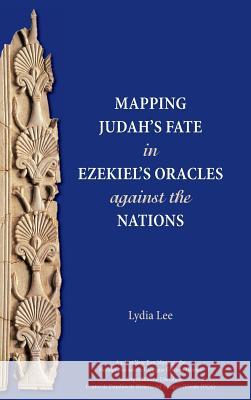Mapping Judah's Fate in Ezekiel's Oracles against the Nations » książka
Mapping Judah's Fate in Ezekiel's Oracles against the Nations
ISBN-13: 9780884141839 / Angielski / Twarda / 2016 / 316 str.
Mapping Judah's Fate in Ezekiel's Oracles against the Nations
ISBN-13: 9780884141839 / Angielski / Twarda / 2016 / 316 str.
(netto: 252,56 VAT: 5%)
Najniższa cena z 30 dni: 263,71
ok. 16-18 dni roboczych.
Darmowa dostawa!
Ezekiel 25-32 contains some of the most virulent speeches directed against the neighboring nations of Judah. Assuming the opposing statuses between the nations and Judah, some emphasize that the destruction of the nations in chapters 25-32 means the upcoming salvation of God's people. Presupposing the nations as judged according to a separate standard of morality, others render the judgment executed upon the nations irrelevant to that upon Judah. Are these then the only two readings of Ezekiel's oracles against the nations? In this study, Lydia Lee postulates a third way to perceive the rhetorical roles of the nations in Ezek 25-32. Unravelling the intricate connections between the oracles against the nations and those against Judah, Lee argues that Ezek 25-32 contains a daring message directed not only against the foreign nations, but also against Judah's land, temple, and nation. In the end, Lee places Ezek 25-32 in a broader context, considering how samples of its early reception within the prophetic book affirm or transform the bleak message about the oblique judgment for the house of Judah.
Ezekiel 25–32 contains some of the most virulent speeches directed against the neighboring nations of Judah. Assuming the opposing statuses between the nations and Judah, some emphasize that the destruction of the nations in chapters 25–32 means the upcoming salvation of God’s people. Presupposing the nations as judged according to a separate standard of morality, others render the judgment executed upon the nations irrelevant to that upon Judah. Are these then the only two readings of Ezekiel’s oracles against the nations? In this study, Lydia Lee postulates a third way to perceive the rhetorical roles of the nations in Ezek 25–32. Unravelling the intricate connections between the oracles against the nations and those against Judah, Lee argues that Ezek 25–32 contains a daring message directed not only against the foreign nations, but also against Judah’s land, temple, and nation. In the end, Lee places Ezek 25–32 in a broader context, considering how samples of its early reception within the prophetic book affirm or transform the bleak message about the oblique judgment for the house of Judah.











